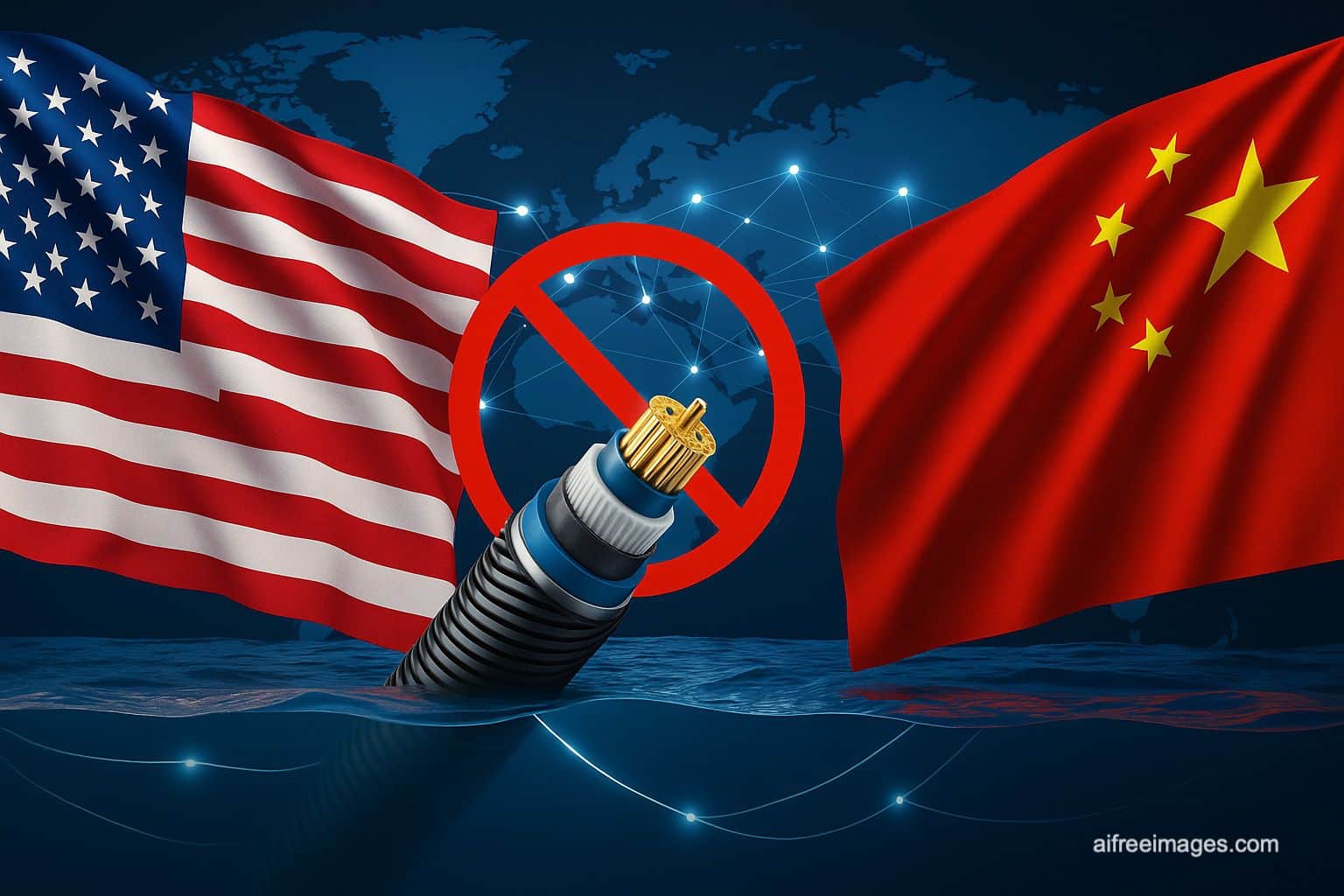The FCC plans new restrictions to prevent Huawei, ZTE, and other Chinese companies from being part of critical international connectivity infrastructure.
In a new chapter of the geopolitical tensions between the United States and China, the Federal Communications Commission (FCC) announced its intent to ban the use of Chinese-origin technology and equipment in submarine cables connecting the U.S. to the rest of the world. The goal: to prevent potential cyberattacks and espionage operations linked to companies like Huawei, ZTE, China Telecom, and China Mobile.
Brendan Carr, one of the FCC commissioners, was clear: “China poses a real threat in using submarine cables to facilitate espionage and cyberattacks.” As a result, the regulatory body is working on establishing new rules to prevent any part of the U.S. submarine cable network from relying on technology produced by vendors deemed unreliable.
Currently, over 99% of international data traffic flows through more than 400 submarine cables, many of which are controlled, managed, or maintained in collaboration with global technology companies. The United States aims to safeguard this infrastructure, which is considered critical not only for civilian communications but also for government operations, the economy, and the military.
A policy that is not new but is being tightened
Distrust toward Chinese technology is longstanding. In 2020, several cables intended to connect the U.S. with Hong Kong were already blocked from becoming operational. In 2024, the FCC announced a new plan to regulate the use of foreign technology in submarine networks, tightening controls over providers with links to adversarial governments.
One example reinforcing Washington’s concerns is the cutting of two cables connecting the Matsu Islands (Taiwan) to the mainland, an act attributed in 2023 by Taiwanese authorities to Chinese ships. For the U.S., the risk isn’t just theoretical: it is seen as a real possibility that, in a future conflict, these cables could be targeted for sabotage or systematic espionage.
Spain and Europe also show reservations
Although the strongest measures are being taken from Washington, Europe is also signaling caution. Countries like Spain have reduced their dependence on manufacturers like Huawei for critical telecom networks, following recommendations from European cybersecurity agencies.
Additionally, after recent incidents of submarine cable cuts in the North Sea and the Mediterranean, European authorities are increasingly assessing the origin of equipment and services used in such infrastructures.
A struggle that goes beyond technology
The dispute over submarine cables is not only technical but strategic. In a hyperconnected world, controlling digital infrastructure means controlling the flow of information. For the U.S., minimizing China’s involvement in these systems is part of a broader policy of technological containment and digital sovereignty protection.
The measure also aims to send a clear message to allies: digital trust should be based not only on technical criteria but also on geopolitical considerations. Meanwhile, China continues expanding its own network of submarine cables in collaboration with countries in Africa, Asia, and Latin America, in a quiet but decisive race for global connectivity control.
via elchapuzasinformatico and Reuters

